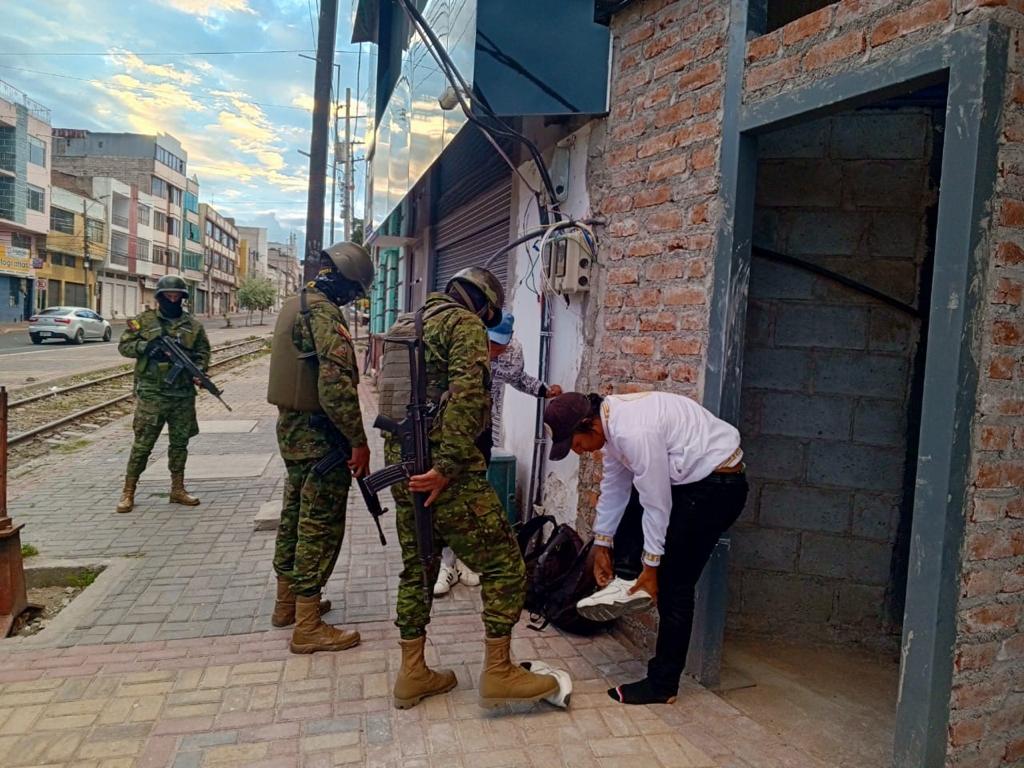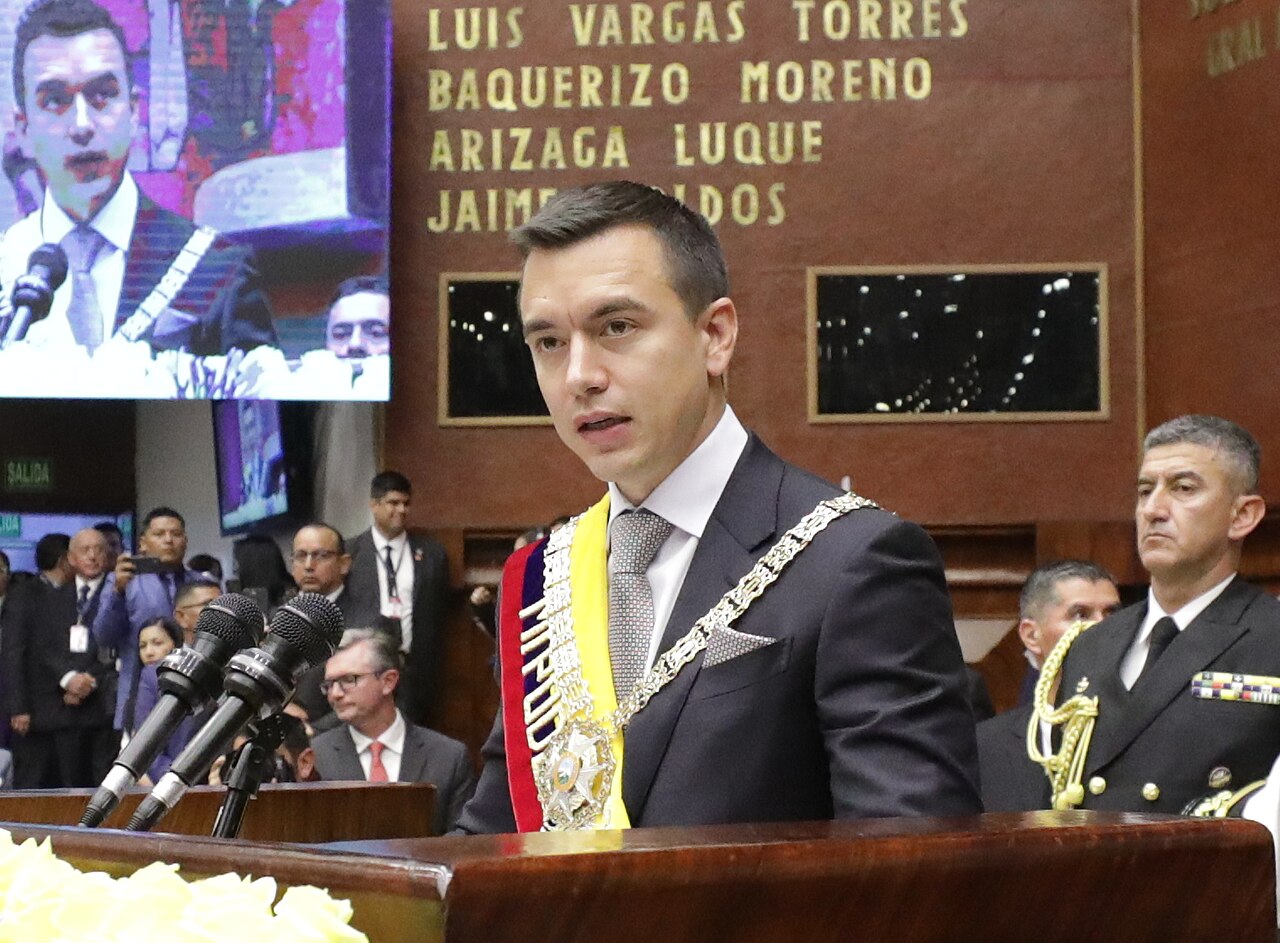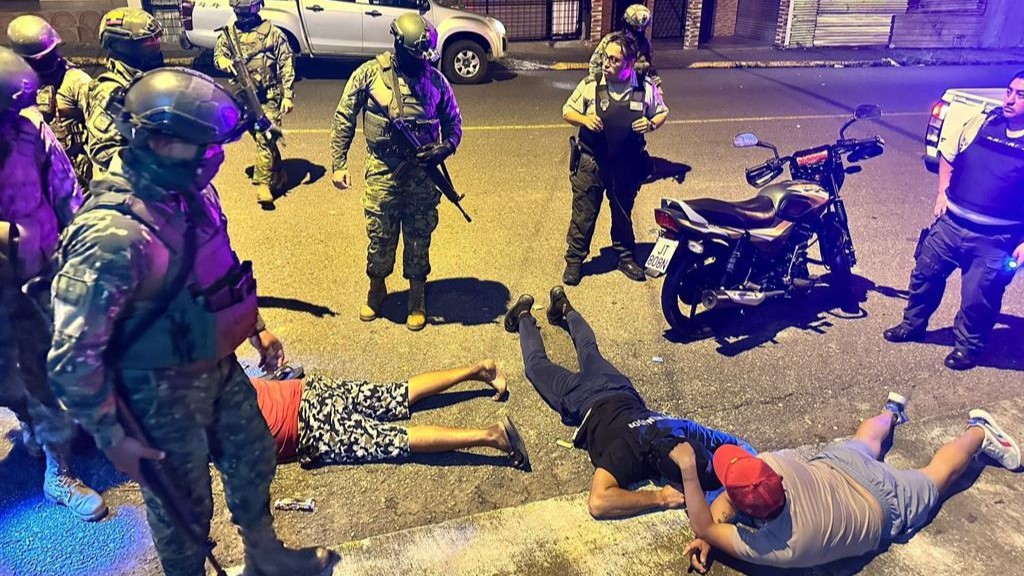Yesterday, 9 January, we saw on the news across the world a scene of unprecedented violence in Ecuador, mainly in Guayaquil, but also in the capital Quito. What is happening, and why?
On Sunday, 7 January, Fito Macías, the leader of a criminal faction called Los Choneros escaped from the Guayas prison. This was the episode that prompted the recently sworn-in president Daniel Noboa to declare a state of emergency in Ecuador; which allows the armed forces to act as “public security”. On Monday, they intervened in Ecuador's prisons to ‘discipline’ prisoners with violent methods, in an attempt to reimpose control.
In retaliation, the next day, criminal gangs carried out a series of attacks across the country, ranging from lootings in Quito's historic centre; invasions and temporary kidnapping of people from universities in Guayaquil; shutting down roads; setting buses on fire and even invading a live television programme that broadcasted as criminals took studio workers hostage.
By the end of the day, President Noboa had decreed a new level of state of emergency, which determined that there is an internal armed conflict, allowing the state to suspend even more democratic rights, including imposing a curfew from 11pm to 5am, among other measures.
 The crisis of capitalism is the necessary breeding ground for criminal gangs to grow and strengthen / Image: Ejército Ecuatoriano, Twitter
The crisis of capitalism is the necessary breeding ground for criminal gangs to grow and strengthen / Image: Ejército Ecuatoriano, Twitter
This obviously does not come from nowhere, the crisis of capitalism is the necessary breeding ground for criminal gangs to grow and strengthen. We can list some elements that deepen the social deterioration: the economic crisis of 2014 and 2015 with the slowdown of the Chinese economy that impacted all of Latin America; two consecutive governments conducting thoroughgoing liberalisation measures, under Lenin Moreno and Guillermo Lasso; and the impact of the COVID-19 pandemic, which was very deep in Ecuador.
Many journalists also state that the ports on the coast of Ecuador became part of drug trafficking routes; as well as the dollarised economy of Ecuador, which facilitates money laundering from the drug trade.
All this has led to episodes of skyrocketing violence in Ecuador. From 2018 to 2023, the number of homicides increased by 800 percent, jumping from six to 46 homicides per 100,000 inhabitants in 2023. These numbers surpass those of Brazil and Mexico, for example, which are among the most violent countries in Latin America. In August last year, one of the presidential candidates, Fernando Villavicencio, was assassinated immediately after internal elections, just 10 days before the first round of the presidential elections.
The working class and youth in recent years have mobilised against the deterioration of living conditions in Ecuador, both in the October Strike of 2019 and in the National Strike of June 2022. But the lack of revolutionary leadership has meant that these large mobilisations of the working class have not achieved their end goals. Instead, the leadership of these demonstrations reached agreements with Moreno in 2019 and Lasso in 2022. Nothing has changed: even the very limited demands put forward, which do not tackle the material basis for the problems Ecuador faces, have been conceded.
The reformist opposition folds to ‘national unity’
Unfortunately, both the left-wing Revolución Ciudadana and CONAIE, when pressured, succumbed and joined President Daniel Noboa's call for national unity to fight the criminal gangs. Both Rafael Correa from Revolución Ciudadana and Leonidas Iza from CONAIE posted on their social media their support for the State of Emergency, in the name of national unity.
What national unity are we talking about? How can there be ‘unity’ of interests between the workers and peasants, and the oligarchic capitalist magnates who exploit them? National unity between those who massacred the peasants, workers and youth in the October 2019 uprising and their victims? The idea is to present a confrontation between criminal gangs and the democratic establishment. But this is false.
 Both the left-wing Revolución Ciudadana and CONAIE, when pressured, succumbed and joined President Daniel Noboa's call for national unity / Image: Asamblea Nacional del Ecuador, Wikimedia Commons
Both the left-wing Revolución Ciudadana and CONAIE, when pressured, succumbed and joined President Daniel Noboa's call for national unity / Image: Asamblea Nacional del Ecuador, Wikimedia Commons
In the first place, the criminal gangs are part of the framework of the rotten capitalist system in Ecuador. Their huge, multi-million dollar business could not exist without the collaboration of the business and financial sectors and the state apparatus itself (the police, the army, the courts, etc.)
Secondly, the "democratic rule of law" is not a neutral institution, but the direct instrument of the interests of the capitalist class and imperialism. Any measure to strengthen the bourgeois state apparatus and its powers, with the excuse of the fight against cartels, will be used in the future against the working people.
We know that the state has a bigger military apparatus than the drug traffickers and they will probably regain control of the situation, they will have to come to an agreement with the drug traffickers so that they can live together in this new, even more tense situation. As it does in Brazil and Mexico, for example, where in one way or another the state coexists with the criminal gangs, they have elected deputies and control the poorest neighbourhoods in the major cities.
This whole situation feeds the demagogy of right-wing populists in Latin America like Nayib Bukele and Jair Bolsonaro who use these conditions to gain popularity and votes. Bolsonaro did nothing to fight crime during his term as president in Brazil, but Bukele has made progress against the criminal gangs in El Salvador, using Bonapartist methods, combining brutal repression and the suppression of democratic rights and agreements with gang leaders, and now he’s become extremely popular.
As communists, we are clear that the only class capable of stopping the growing violence, which is a consequence of the crisis of the capitalist system, is the organised working class. Therefore, it is necessary for the working class to take power into its own hands and put an end to this rotten system. Communist revolution is the only way out!

